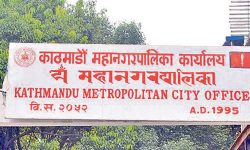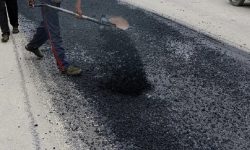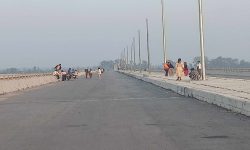Not all weather friends: Trade, Commerce and Industrial quagmire of China
They put it in different ways-‘fair-weather friends’ and ‘a friend in need is a friend indeed.’

The triangular relation between Nepal, China and India sharing international borders continues to occupy a prominent niche in the domain of public discourse, at least in the Asian continent. In this context, the latest topic drawing attention is the asymmetric Nepal-China trade relations and newfound fondness of copious Chinese investments for industrial / infrastructure projects in Nepal.
Since 2015 when the India-Nepal relationship hit the lowest point in recent years, the trade prospect between Nepal and China, meanwhile, witnessed an upward swing with the two countries signing a number of trade agreements. However, the agreements including those targeted to operationalize six trade points have only strengthened the submission as to ‘how hurriedly impractical and unviable agreements were inked’!
The current Nepal-China trade standoff, a by-product of ‘stricter and unilateral’ ex-parte steps taken by the Chinese at Rasuwagadhi and Tatopani trade check posts, has left the common Nepalese traders and businessmen in lurch. As the goods stockpiled in godowns and warehouses keep rotting, Chinese mandarins are sheepishly oblivious, sympathetic and insular to the miseries and perils of their smaller trade partners, a far cry from the principled and altruistic stand of our southern neighbor.
Various news reports highlight that the Chinese officials posted at two trade centers had left their posts for New Year vacation, consequently stalling international trade in these trying COVID times, reflecting Chinese insensitivity and apathy towards their more vulnerable neighbors. So serious is this issue that Nepal’s industry, commerce and supplies minister Lekh Raj Bhatta has unequivocally commented that ‘time has come to reconsider if Nepal should at all do any trade with China’.
Unconfirmed reports however indicate that the trade stand-off at Rasuwagadhi and Tatopani may resume this weekend. Nevertheless in the larger context, the fate of Nepali business houses still remains uncertain owing to ‘restrictive’ and ‘stifling’ Chinese rules and regulations regulating international trade. Significantly, as no one in China is ready to even acknowledge the importance of pressing the issue at hand, many, including a section of those in the power corridors of Nepal consider this standoff as China’sundeclared economic blockade’.
In a sharp contrast, 2015 problems between Nepal and India captured headlines and precipitated rounds of political bickering more so as Nepal accused India of resorting to blockade. Surprisingly the happenings along the Nepal-China border at Tatopani and Rasuwagadhi have failed to garner requisite domestic or international attention, more so at the same pitch and frequency.
With this a natural question arises; Why this discrimination and dichotomy?
It is only natural for occasional disputes to crop up between Nepal and India, which share hundreds of kilometer long ‘open and porous’ borders. The established diplomatic conventions between the two countries are matured and well oiled to not only handle such issues in a balanced manner but also calibrate ‘logical, acceptable and sustainable’ closure. The two sovereign countries with so many similarities and age-old tie-ups, have time and again proved that they are true ‘all weather’ friends.
Gone are those precipitous days of 2015 when the bilateral relation between Nepal and India nose-dived due to suspicion. The organic trade relationship has once again bounced back and is actively thriving. Even during the cataclysmic CoronaVirus lockdown days, India continued to honor and fulfill its international trade commitments by allowing movement of essential commodities from Bangladesh and Bhutan into Nepal through its border checkpoints.
Another burning example
Damak Clean Park Project, a flagship Chinese investment under Belt and Road Initiative (BRI) framework, located in the Prime Minister K P Sharma Oli’s home constituency is a testimony to all those sacred touchstones that have been sacrilegiously violated.
The brazen and high handed manner in which the Clean Park project has been shoved down the gullible locals by Oli administration, all at the behest of China, duly circumventing democratic-participative norms and oft- cherished principles of propriety, has left the locals stupefied. Political parties and land owners have been rightfully incensed by the autocratic ways and means adopted by the project authorities to expedite the ground-breaking ceremony. The colossal socio-economic-environmental pitfalls involved in executing this mammoth engineering project, many of them not being consciously assessed, coupled with untold human cost and misery is simply appalling.
Since September-October last year, the land losers and political parties have been steadfast.








Comments